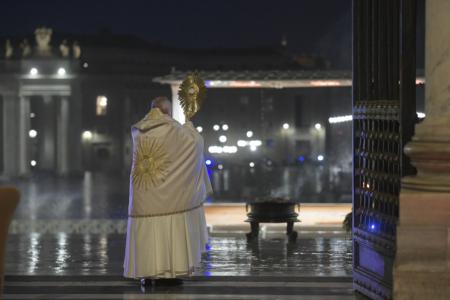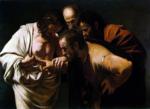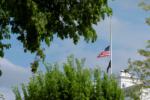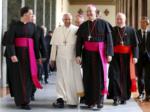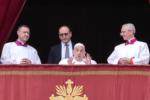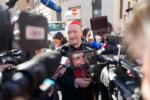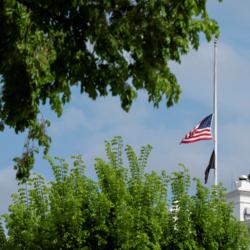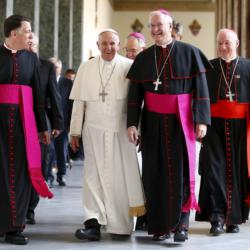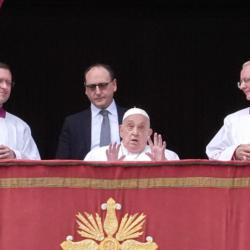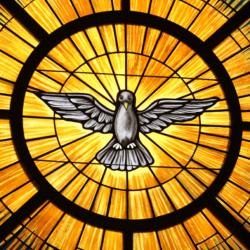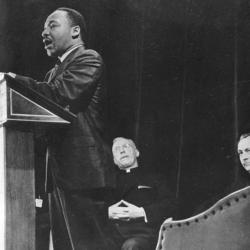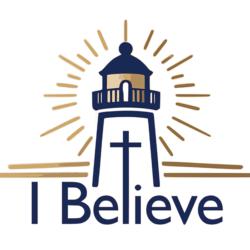Dr. King's visit to Boston and St. John's Seminary 60 years ago
April 23 marks the 60th anniversary of the Freedom Rally on Boston Common, led by Dr. Martin Luther King Jr. In what became the first major Civil Rights march in the Northeast, more than 20,000 gathered to march from Carter Playground in Roxbury to Boston Common, protesting racial segregation and discrimination in housing and schools. "We will not tolerate segregation," Dr. King declared, "whether it is the legal type of the South or the de facto segregation of the North."
Dr. King's trip to Boston is remembered for the Freedom Rally, and rightfully so. Coming as it did just one month after the events of Selma, the rally drew attention to Civil Rights as a national issue. Many Bostonians would later trace their own activism to that rainy day in April, when, gathered around the Parkman Bandstand at the Common, they heard Dr. King's exhortation, "We must not become a nation of onlookers . . . All Americans must take a stand against evil."
Less remembered are the other activities that were on the Civil Rights leader's crowded itinerary, activities that included addressing the state legislature, meeting with Gov. John Volpe and Boston Mayor John Collins, and a stop at St. John's Seminary in Brighton to address an ecumenical conference.
Five months after Pope Paul VI promulgated "Unitatis redintegratio" ("Restoration of unity"), the Second Vatican Council's decree on ecumenism, Boston's Catholic clergy were "walking the walk"; they had invited 600 clergy of various faiths to the seminary for a day of discussion of social issues and fellowship. Ecumenical activities like these were welcomed by their archbishop, Cardinal Richard J. Cushing, who had been a leading Catholic voice on ecumenism even before the Second Vatican Council.
Under Cardinal Cushing's leadership, the ecumenical movement in the archdiocese came to be closely associated with the Civil Rights movement. The first guidelines issued by the Archdiocesan Ecumenical Commission, formed in 1963, noted that "all men are brothers. We are called to reconcile all separations . . . Christians and Jews, men of faith and men without faith, black and white, rich and poor." It was in this spirit that ecumenical dialogue and education emphasized the need for desegregation and racial equality. Indeed, seminarians enrolled in the 1965 spring seminar "Social Relations and Ecumenical Perspective" at St. John's were in the middle of a two-week unit led by the social psychologist Thomas F. Pettigrew on the "history and present situation of the Negro" when Dr. Martin Luther King arrived on their campus.
At the time of Dr. King's visit to the ecumenical conference at St. John's, Cardinal Cushing was confined to his residence, recovering from intestinal surgery. In his address to the conference, Dr. King wished the cardinal a speedy recovery, thanking him for "giving his support to our whole struggle." (Most recently, the cardinal had issued a strong statement condemning the killing of the Unitarian minister James Reeb at Selma and praising the marchers for providing a "vigorous reproach to the depraved consciences of a small minority who have brought bitter shame on all Americans.") In turn, Cardinal Cushing expressed his regret that he was "not yet well enough to take any personal part in the welcome to our visitor." He called on all Catholics to see Dr. King's visit as an "opportunity . . . To reflect once more upon the progress of the Civil Rights movement" and to get to "know the Negro as a man and love him as one of the suffering children of God."
The text of Dr. King's speech to the conference does not survive in the Archdiocese of Boston Archives, but the Boston Globe and the New York Times both reported that he challenged those gathered to consider themselves as "moral guardians" of their people, with a special obligation to stand up and speak out against segregation. Many would heed the call, engaging in discussions on race, organizing marches, and protesting segregation in schools and in housing throughout the 1960s and into the 1970s.
Cardinal Cushing continued to speak out forcefully in support of religious liberty and civil rights, most dramatically at the Second Vatican Council, where, in September 1965, he argued before Pope Paul VI and his brother cardinals, "We must preach the gospel of freedom. Denial of the right to religious liberty usually brings on the denial of many other civil rights. I am not afraid of the gospel of freedom. There are dangers everywhere, but one of the greatest is the negation of liberty."
VIOLET HURST IS THE ARCHIVIST OF THE ARCHDIOCESE OF BOSTON.
- Violet Hurst is an archivist for the Archdiocese of Boston.
